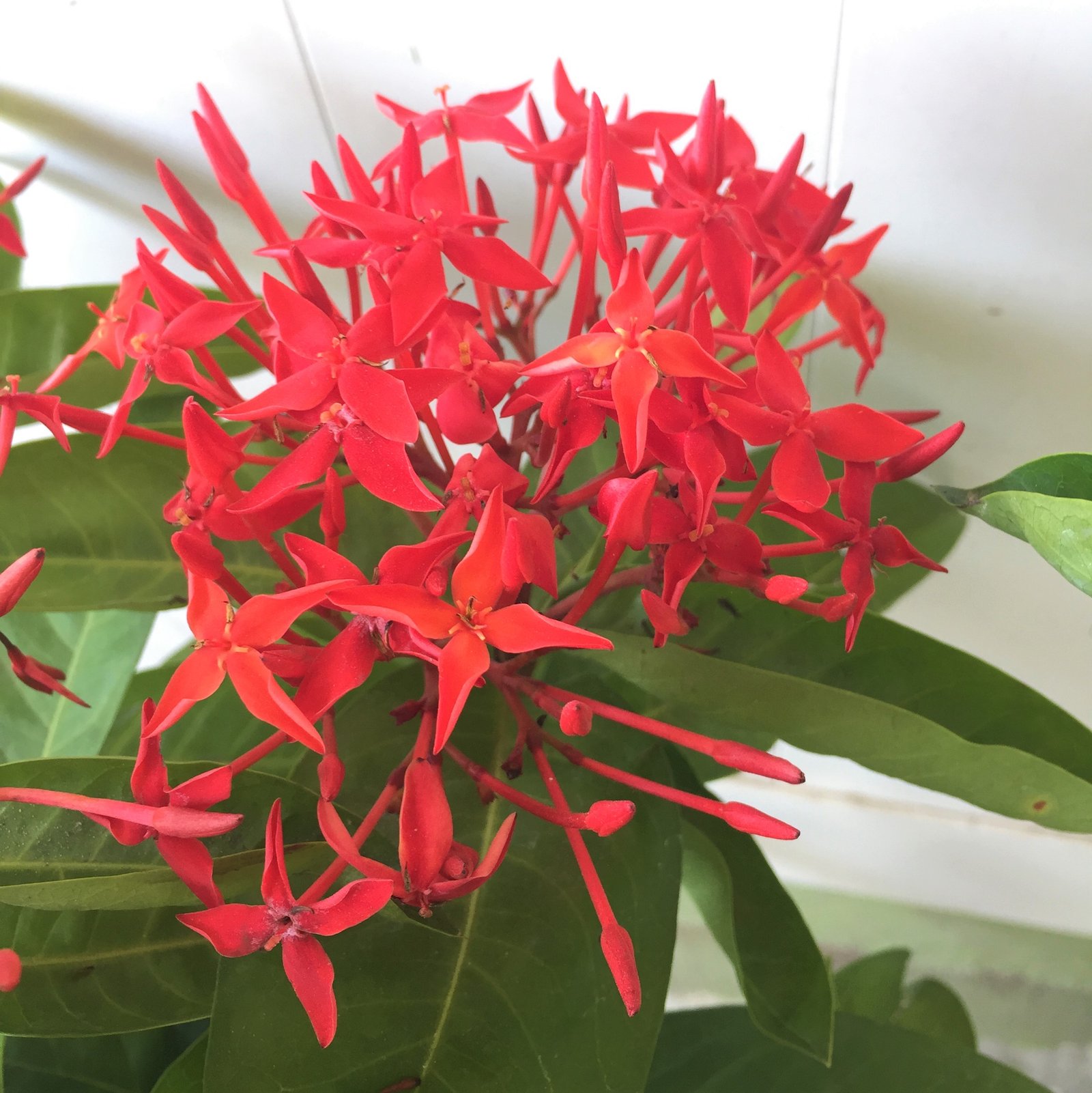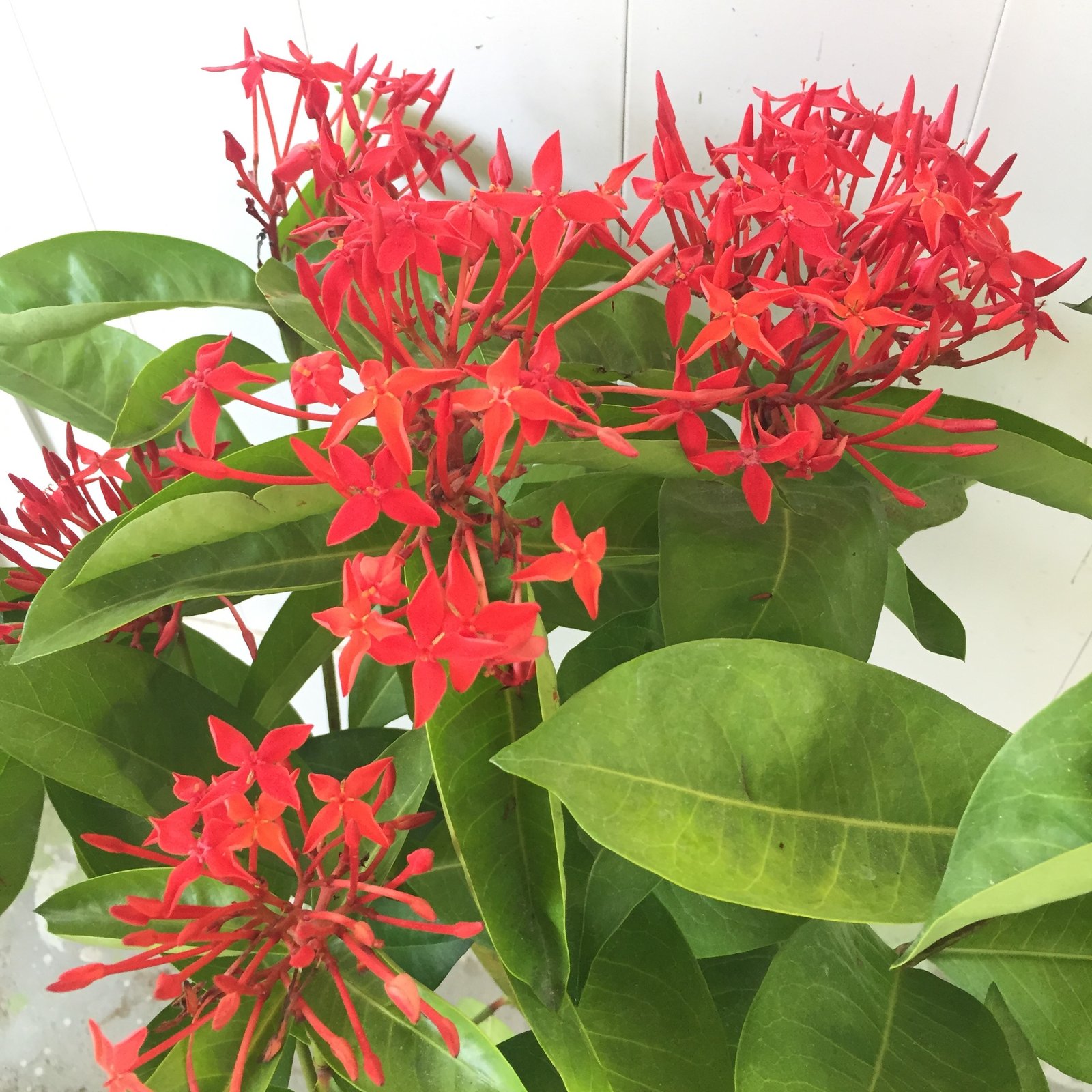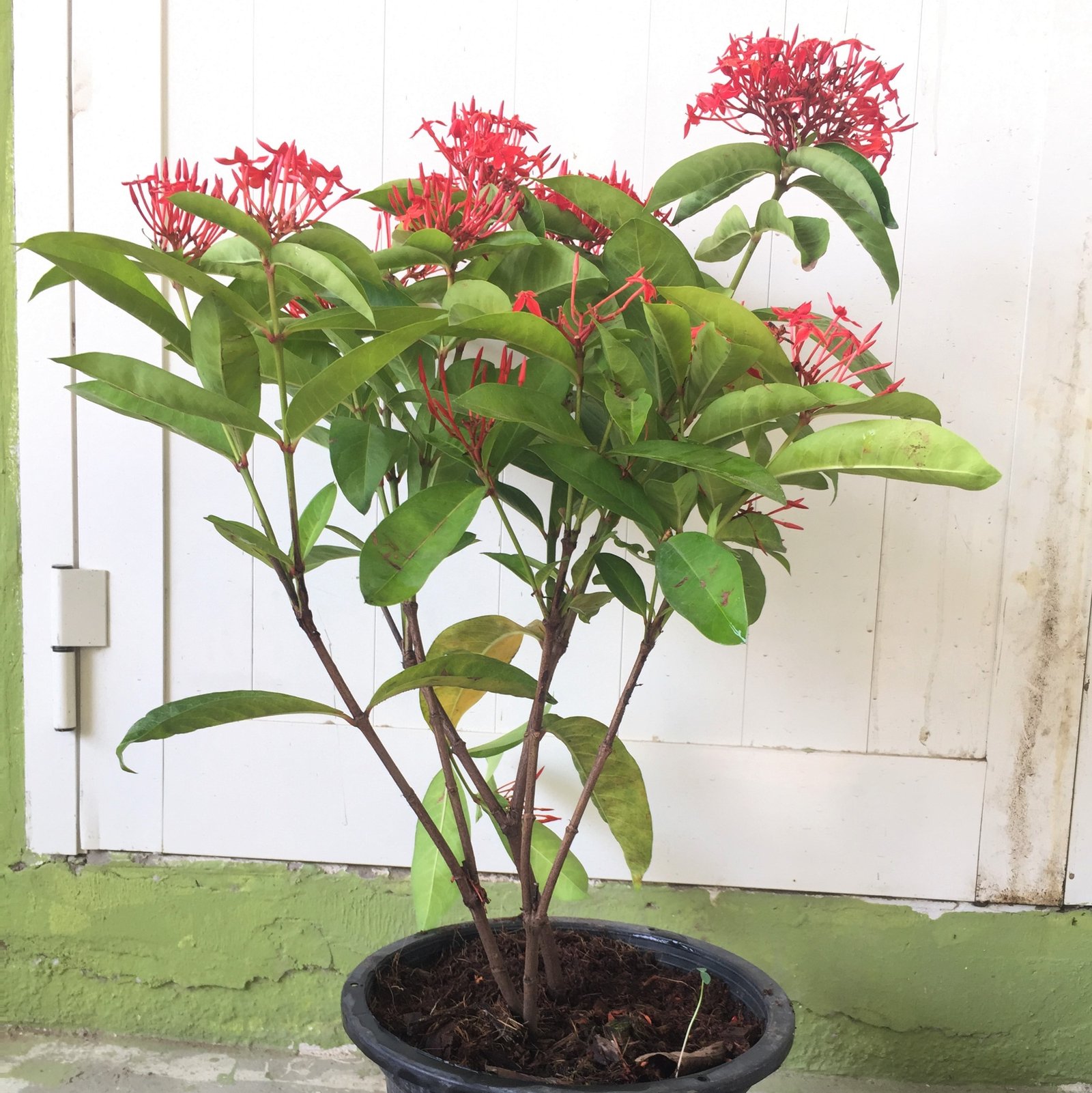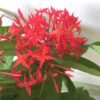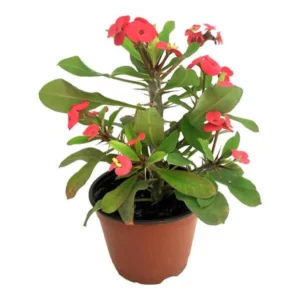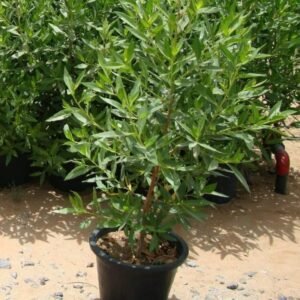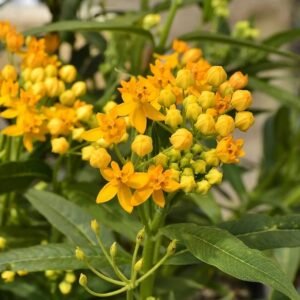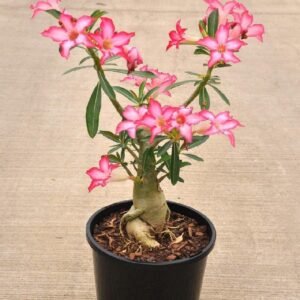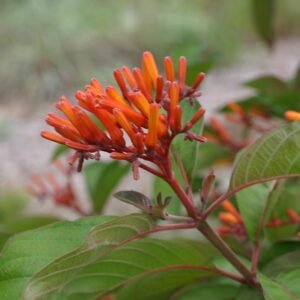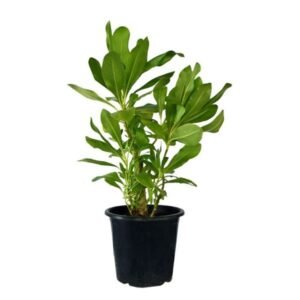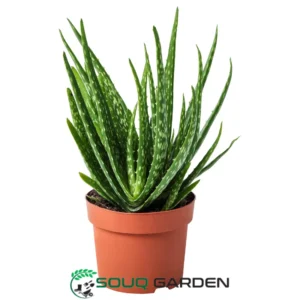| Scientific name | Ixora coccinea |
| Name | Ixora |
| Temperature requirement | 18-24 °C |
| Humidity | 50-60% mist if needed |
| Light | Bright, indirect light |
| Watering | Water everyday and keep moist |
| Pests | Aphids, scale insects, and mealy bug |
| Pet friendliness | Not hazardous |
| Max plant height | Up to 2m |
| Potting mix | Potting soil / Red soil / Manure / Perlite |
| Pot requirement | Good drainage and repot every 1-2 years |
| Nutrition | Apply manure once in fortnight and NPK in next fortnight |
| Pruning/training | Remove dead and diseased leaves with sterile shears |
| Common color & season | Red,orange color,yellow, pink, and white |
| Description | The jungle flame(ixora coccinia) is an evergreen shrub native to india and sri lanka. Frost sensitive in gulf regions, it has become a popular garden shrub in recent years. Its shiny, leathery leaves measure 5 to 10 cm long and 3 to 5 cm across. Young foliage sprouts tinted in bronze. Bright red flowers appear in clusters of 10 cm diameter and attract butterflies. At first, the outer flowers open while the inner ones follow later on. Various cultivars are available with flower colours in pink, orange, yellow or white. Flowering begins in late spring, but flowers appear sporadically all year round. Other varieties grow compact and seem to be hybrids with the flame of the woods (ixora chinensis). It is less suitable for desert climates than its chinese cousin, but takes more shade. In its native environment, this shrub reaches a height of 4-6 metres, but in gulf regions it grows to only about half that size. Softwood cuttings root best at the end of summer, encouraged by some rooting homone. Initially, they should be pinched to achieve regular branching. If grown in pots, the jungle flame tends to shed flowers, especially if it is moved. It appreciates light, but does not tolerate full sun if this is associated with harsh conditions such as drought and wind. The soil should be well drained, acidic and nutrient rich with plenty of compost. Frequent deep irrigation is essential to establish the plants. The plants look great if planted in groups or as a flowering hedge. Scale sometimes affects this shrub, but otherwise it tends to be disease-free. |


